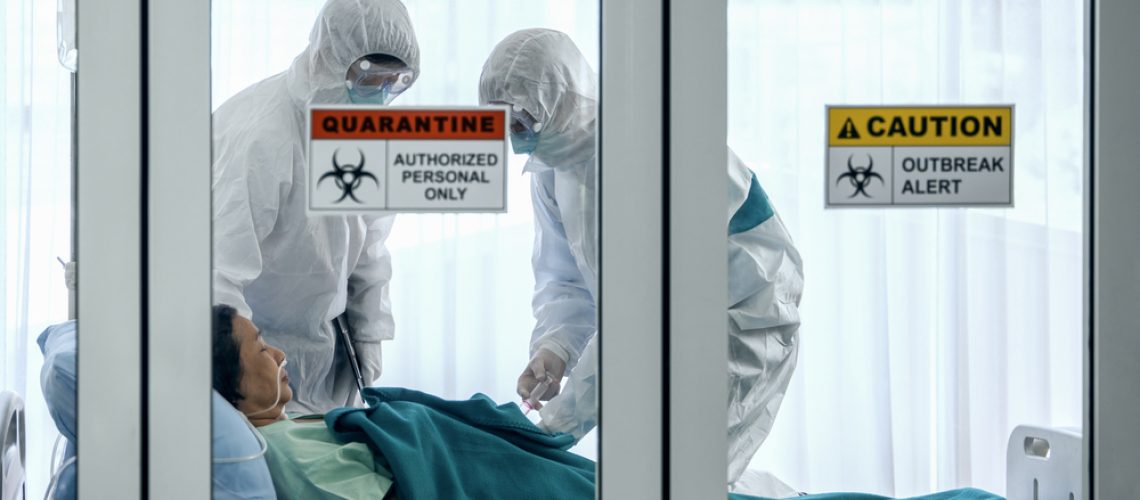Bending the Curve: Question of survival!
The city that gave the word quarantine is in an unprecedented lockdown. Streets are empty. State is helpless, and in a tearful decree, watching the surrender. Rome was not built in a day, but has been destroyed in a matter of one week.
The mighty United States has trumped China (in what notoriously looks like an olympic medal tally), with highest Covid-19 cases around the globe. Once the toast of the rich and the valour of the aspirational middle class with that American Dream, NYC today sits on the brink of a holocaust. Olympus has fallen!
Economy in general has become the biggest collateral damage. Wall Street has plunged in the worst drop since 2008, and the crashing financial markets all around the world portend the risk of yet another recession.
To what extent the ongoing mayhem will roil the underlying global business is not yet clear, but a potential downward spiral is eminent — it could even result in a surge in bankruptcies. No matter how much markets want to hear that the global economy is open for business, no one can vouchsafe individual safety at the moment.
Which means there is only one way to see through these tumultuous times — stay confined to homes for the next couple of weeks. Or probably months. Sine Die.
Round and round goes the tornado, further sapping the economy
We live to die another day — to paraphrase James Bond. At some point, the coronavirus pandemic is likely to stop spreading; apparently it has already started to ease in Wuhan from where the dance of death started, and in parts of South Korea. But Coronavirus is going to take a scythe through the normality of daily functions. In any case, the return to social normality is likely to trigger a new round of infections.
Meanwhile, economic damages from closed factories and restricted travel may prove far from fleeting, as supermarket shelves are stripped bare, flights are grounded, and workers are being laid off, or furloughed.
Organizations have to be mentally prepared for a long battle ahead — one, that they could even lose. For this is not a temporary headwind to the economy — it’s a tornado-like headwind and going to be powerful.
What businesses should do?
Business owners will have to be prepared to earn in millions what they were earning in billions. Keep profits aside for now and sustain. See through the headwind. And accelerate later when the tide turns its course, based on valuable lessons from this massive disruption, backed with learning agility.
- Go Virtual
There looks like, so far, only three ways to prevent Covid-19 from making human species extinct. One is creating a vaccine, but it’s still 12-18 months away as doctors say. The second calls for extraordinary restrictions on free movement and assembly — social distancing, yes — coupled with aggressive testing, to interrupt the virus’s transmission entirely. A third is being proposed, and it looks cruel to even consider at the outset, but this is what one section of the medical fraternity believes in: Herd Immunity! So just wait until enough people contract the virus — eventually so many will have been infected that the outbreak will fizzle out on its own.
Of course, that makes sense when all these people survive! And this is where the concept of herd immunity gets scary. What if Churchill had said the same thing during World War 2? “Nazis are already everywhere in Europe. We can’t fight them. Let’s just give up.” Could be solid if it works, but devastating if it didn’t!
Which is where we are again left with only one sensible option at the moment: Stay at home and help flatten the curve.
What does this mean for the businesses? They will have to go remote. Go virtual. Moving from brick-and-mortar to online is not a next-generation thing anymore. The leap has arrived.
Move your training & development ecosystem from physical infrastructure to the online. This also means edTech startups are going to laugh all the way to the banks.
2. Create a Business Continuity Plan for future
In 1993, when terrorists attacked the World Trade Center, companies for the first time realized the importance of business continuity planning. None of them were prepared for such an untimely disruption and as many as 150 companies went out of business. Others suffered irreparable losses.
In 2001, the World Trade Center was attacked again with never-seen-before horrifying visuals, but this time companies had learnt their lessons. So while the infamous 9/11 attack, as we know it, would go on to change the world’s history, geography and the economics forever, companies that survived their manpower somehow restored their business essentials with duplicate instances of electronic data.
They had learnt a valuable lesson after the 1993 WTC bombing: Back up information often and completely. This also spurred companies to prepare for possible future disasters by investing in data storage and recovery services. Today, BCP Awareness (Business Continuity Planning) is almost a mandatory course module in organizations.
The Coronavirus outbreak is going to force companies to draw a crisis recovery plan for the future, similar to the lines of BCP, for in all probability Covid-19 is not the last of such outbreaks. At least this is what Bill Gates feels — we could see more such epidemics in future.
The question is how ready are we against such a holocaust? Do not forget the future of wars will be these biochemical warfare tactics; traditional combat fights or guns are passé.
Get a multi-faceted disaster recovery plan ready and documented! Don’t forget a crisis is often the breeding ground for innovations.
3. Cultivate future leaders
These are the times you can test the real mettle of a leader. In such gloomy hours of full uncertainty, ordinary mortals are always looking up to leaders around them who could instil confidence to sail through such times or at least show a spark of hope. Until the time there is hope, there will be fight. Even if there is an apocalypse tomorrow, your business will go down last.
So while good organizations try to mitigate such unexpected changes in macro context by working on internal processes, the real differentiator comes from having leaders who deal with external challenges like these effectively and decisively.
If today’s crisis has shaken you, you need to arrange special leadership labs for tomorrow to enable your mid and senior level leaders thrive in these times of uncertainty.
- Aim to develop adaptable leaders for all situations.
- Outline a clearly-defined “How To” framework for acquiring a repertoire of different leadership styles based on different situations.
- Make participants handle real-world use case scenarios with expert-recommended tactics and approaches.
- Use video-based simulations to tackle realistic leadership situations.
For now, Cancel Everything!
If you have ever heard about whirlpools from expert swimmers, they will tell you how there is hardly anything you can do if you get sucked into one. The first and foremost survival tip when you are confronted with an unknown force dragging you down is to not panic! Normally, people without experience start panicking with reflexive involuntary movements of the hands and legs leading to the massive expulsion of energy, forcing them to inhale, drown, and ultimately die. Otherwise, even a person with mediocre swimming skills can escape if they keep calm and hold their breath. Eventually the swirling undercurrents change their flow and direction releasing its dangerous grip over the person, allowing them to escape and resurface safely.
This is precisely one such situation. The most sensible thing to do is to avoid panic, stay at home, and wait and watch how things develop.
Because we don’t yet know the full ramifications of Covid-19, or the novel Coronavirus. What we know is that it’s spreading in exponential fashion — once it reaches stage 2, or further the stage 3 of community transmission, cases multiply.
While in countries that have imposed social distancing effectively, the number of new cases have leveled off, which calls for the need to actively promote social distancing before the epidemic reaches devastating proportions with frightening rapidity, overburdening our health-care system.
Any diversion is not helpful. Not accepting the problem will be a bigger problem. WHO tried to downplay the dangers of the coronavirus, and it boomeranged. The UN body had to eventually declare Covid-19 an official pandemic, after much denial.
RNA-based viruses like the coronavirus or the flu tend to mutate around 100 times faster than DNA-based ones. Add to it the fact that, at this stage, we don’t know how the virus is going to mutate. Which is why it’s best to stay calm — locked-in — and play the waiting game.
Cancel everything. Move all your business meetings online. Train your employees virtually. Conduct your conferences and townhalls using online platforms. Postpone your classroom-based training sessions until the fall. Tell your employees to strictly work from home. Move academic classes online before your students get sick and infect their frail relatives.
All of these decisions have real costs to the business. Rebuilding economics from the ground up is going to take time and out-of-the-box transformations. But all that, only if we survive today.
2020 is going to be remembered for a long, long time by those who survive. For the first time in recorded history, the entire 8 billion people on the planet are riding on the same boat portending a possible apocalypse. And there is no hack, other than the time-tested gospel truth: Do your best, and then hope for the best.
For now, above everything, Cancel Everything. The ROI of social distancing will happily be the survival of human race.








